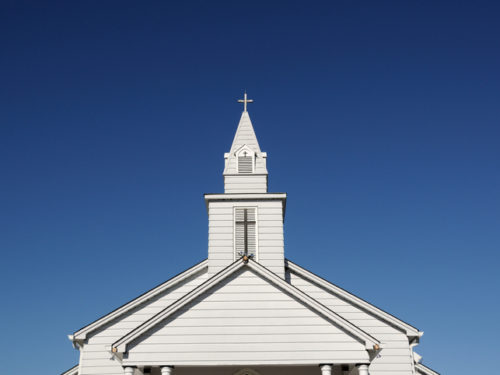 Uncategorized
Uncategorized
In light of the multiple thousands of denominations existing over and against Je...
 Uncategorized
Uncategorized
By: ECO Team
“Bring a magazine and keep your head down.”
As a young evangelical pastor in a mainline denomination, this was the implicit advice I had received about how to survive denominational meetings. In time, I learned to put my own stamp on this general strategy. A few of the patterns I adopted: come late, leave early, sit in the back with a few other evangelical pastors in the room, and make snide comments to make the time go faster.
Was this an effective strategy? While I’m not exactly proud of this approach, I will say that it allowed me to remain engaged in fruitful ministry at the local church in the midst of a denomination that sometimes seemed to have very different ideas about the purposes of the Church.
Was this anything like the picture of connectionalism that formed in my head in seminary as I drank from the deep wells of Reformed theology and polity? While there were many days when I tried to convince myself that it was, deep in my heart, I knew that this wasn’t really what I thought I had been signing up for. I had a moment of clarity at a meeting of Rotary in which I realized that I had a slightly stronger sense of being in partnership with my fellow Rotarians than I did with many of the folks I sat next to at denominational meetings.
As our church was going through the discernment process to decide whether to leave our denomination, I think this frustrated desire for connectionalism was what finally pushed me over the edge. While I agreed with my evangelical colleagues who held the freedom to preach the Gospel as the most important “line in the sand,” I also noticed what appeared to be a marked increase in disengagement strategies among evangelical pastors in mainline denominations. In some cases, it felt as if evangelical churches were adopting a de facto congregationalist strategy regardless of their philosophical commitment to connectionalism.
What got me most excited about ECO was the idea of recovering the dream of a connectional ministry that had fired my imagination in seminary. And now that we are officially in ECO, one of the most enticing aspects has been making connections with other pastors and other congregations who are working toward the same goals we are.
Earlier this year, I invited the elders and pastors from three other churches to form a Missional Affinity Group with us. And in June we had the first of what will surely become an annual get together. There was some resistance to the idea from a number of the elders at our churches, presumably because they had been to denominational meetings before and had felt that their time was wasted. But we pressed, and they came.
The morning began with an elder from one of the churches standing up to give a report on how the Spirit has been moving in the church. When he announced that they’ve had 12 adult baptisms in the last quarter, we all broke into applause. The next three hours flew by as we shared joys and challenges with one another, prayed together, and shared our dreams for the future.
Not once did I wish I had brought a magazine.
 Uncategorized
Uncategorized
In light of the multiple thousands of denominations existing over and against Je...
 Uncategorized
Uncategorized
My first pastoral call was to the First Presbyterian Church of Winnfield, a litt...
 Uncategorized
Uncategorized
This semester, I’m teaching “The Holy Spirit and the Church.” Our primary textbo...